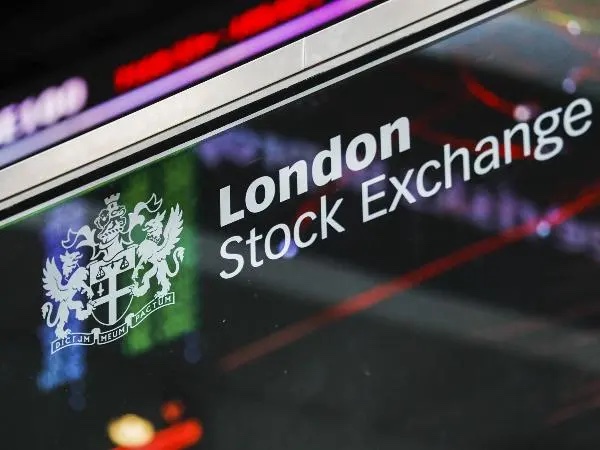Tony Dalwood: Why Gresham House is ditching the London Stock Exchange

Charlie Conchie interviews the biggest movers and shakers in tech, fintech and financial services. This week, chief executive of Gresham House, Tony Dalwood, explains why he’s leaving the London Stock Exchange.
Rugby, says former Saracens fullback Tony Dalwood, can teach you a thing or two about business.
“Teamwork, leadership qualities – and you know how to get kicked in the shins once or twice and pick yourself up from it,” the now chief of Gresham House tells City A.M. in an interview.
It also seems to have shown Dalwood the value of surveying the pitch in front of him and taking an opportunity when it presents itself.
Dalwood’s alternative asset management outfit completed a £470m take-private deal with UK and US private equity firm Searchlight yesterday, making it the latest in a slew of firms to have been plucked from the London Stock Exchange this year.
Gresham House has had a comparatively bumper year against the torrid backdrop for money managers globally. At its latest – and final – set of half-year results in September, flows ticked up and adjusted operating profits rose eight per cent to £14.2m. The group had amassed assets under management of £8.3bn at the end of June.
However the firm’s decision to shift into private ownership offers a window into some of the issues facing the London Stock Exchange next year. Not only is the bourse battling with firms looking across the Atlantic and channel as potential IPO venues – it’s also fighting the pull of the private markets.
New chapter
Private equity ownership marks a new chapter in a centuries-spanning history for Gresham House. The firm has been around in name since 1857 but has built a reputation as a sustainable infrastructure and alternative asset specialist under Dalwood’s leadership since 2015, pumping cash into assets like forestry and solar farms.
But in spite of a largely rosy reputation in the industry and strong performance, Gresham’s share price was in the doldrums prior to the swoop from Searchlight.
Between last April and June this year, the firm had tumbled around 30 per cent in value, dragged lower by the general doom and gloom around the investment industry and still volatile public markets.
For Dalwood, the firm’s listing on AIM had become more of a hindrance than a benefit.
“The last 12 to 18 months have been quite tough for equity capital markets in general, and that has led to valuation dislocation in our business, which then led to a constraint on us to access capital,” he says.
“If we can’t access capital, that will constrain us in our growth and if we can’t grow, we’ve got to look at other options.”
While the listing had brought “positives” in the past, like building the brand and raising easier capital from investors, they had failed to deliver “continually”. Searchlight came in with an offer 63 per cent above its trading price, and Gresham readily accepted.
Teamwork, leadership qualities – and you know how to get kicked in the shins once or twice and pick yourself up from it
Fighting on two fronts
Dalwood’s complaint however underscores the dual fronts the London Stock Exchange may now be fighting on next year.
While a slew of high-profile names like Arm and Flutter have decided to list in New York in a bid to access easier capital, the bourse is also facing the allure of private markets. Some 36 firms have now opted to be scooped into private hands this year. Several smaller companies have also ditched their listings altogether, saying it simply doesn’t offer the benefits to justify the costs and drawbacks.
Solgenics, an African renewables firm listed on London’s smaller AIM market, neatly summarised some of the issues earlier this year as it de-listed. The “considerable cost, management time and legal and regulatory burden” of its AIM listing was “disproportionate to the benefits to the company,” the firm said.
Alternative view
Gresham House has also been a victim of its own success in some regard. Investors have looked to diversify over the past 15 years and boost their allocation to alternative assets like private equity and infrastructure.
While money has been flowing into the firm’s funds, Gresham as a smaller listed company did not enjoy the same sort of boost.
“It’s ironic that we’re benefiting from the movement to alternatives, but at the same time feeling the disbenefit of the listed markets,” Dalwood says.
The aversion to smaller stocks is a “global phenomena” and by no means unique to London, he adds, but there are some troubles still plaguing the way that the UK investors look at the domestic stock market.
“In the UK, I’ve seen people talk about anything below £2bn pounds being viewed as a small cap company – £2bn is basically on the verge of the FTSE. So you’re talking about everything outside the FTSE being deemed as a smaller company.
“Of course, by definition, people perceive that to be more risky.”

Quick fix?
Part of the problem for Dalwood lies in a lack of exposure. Smaller quoted companies have struggled under a decimation of the research industry in London over the past seven years, something officials in the City are looking to tackle through Rachel Kent’s review of the investment research landscape.
Regulators and the government also need to urgently reform the market to boost liquidity and simply get more cash flowing into equities, he says, an area that is going to be a much trickier problem to solve.
“[Fixes] include a reduction in regulation and the reduction of some governance reforms,” Dallwood says.
London’s conservative approach to paying its executives is, in his view, another area dampening the appetite of firms for the public markets.
“If you want the best brains to come into the listed markets or into corporates, you want to be able to pay them,” he adds.
Even with the FCA’s shake-up of listing rules and a slew of regulatory tweaks coming through, he reckons meaningful reform is going to “take quite a long time to be injected into the system.”
For now, Gresham is looking forward to its stint away from the swings of the equity markets. The firm is looking to more than double its assets under management to £20bn in its five-year plan, and Dalwood says Searchlight is committed to giving it the capital it needs to grow internationally.
But with Searchlight’s five to seven-year investment horizon, he is already scoping out life beyond private equity. Could London’s markets see a return of Gresham house in future?
“We’ll be dictated by a couple of things including where most of our capital is coming from or deployed. At the moment the majority is the UK, but our plan is to do this more globally in Australasia and the US, so that the US could be an option.”
It seems Dalwood will be waiting to assess the pitch in front of him before deciding where to take his next punt.